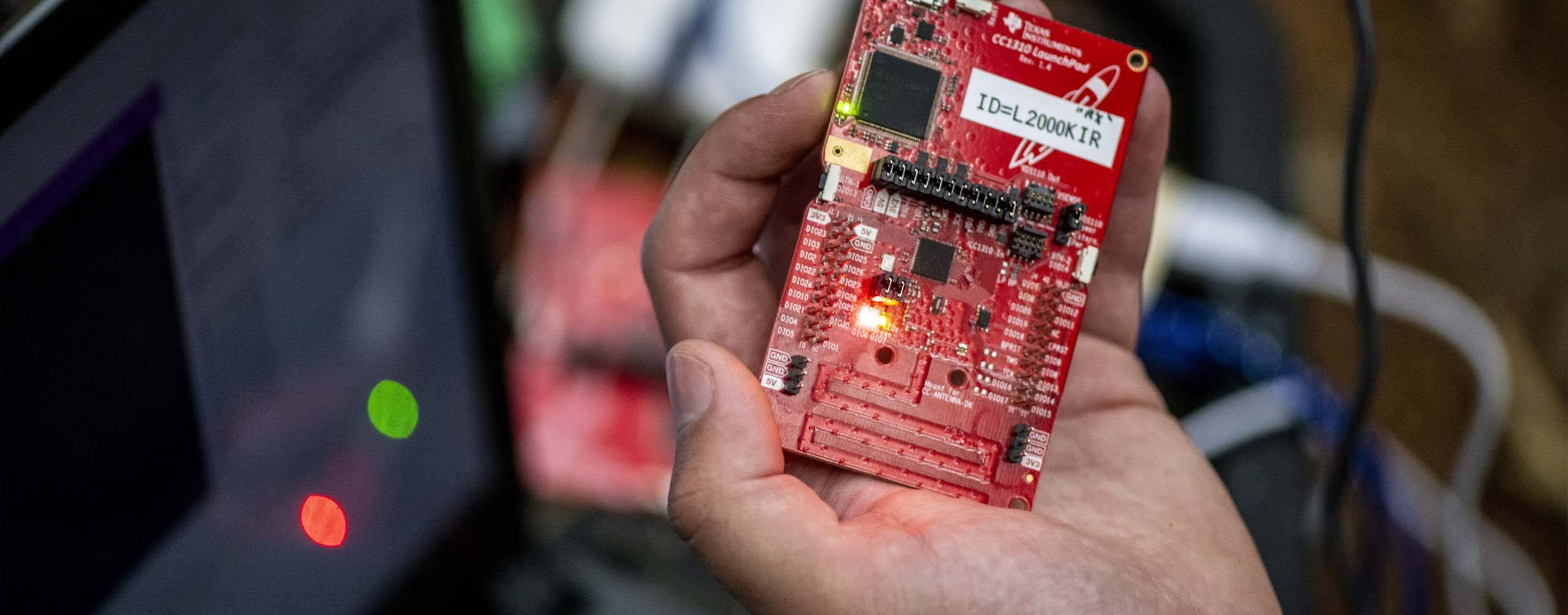
Computer Engineering
Maine College of Engineering and Computing
We all know what a computer is, but did you know that your portable gaming system, car and microwave oven have as much or more computational power as the building-sized computers used for code breaking in World War II? Nearly everything electrical has, or soon will have, one or more computers at its core. From airplanes and rockets to industrial machines and robots, smart handheld devices with cameras, music players, multitouch displays, GPS navigation systems, medical devices, toys, and even household appliances such as autonomous vacuum cleaners all have computers and supporting software.
Computer engineering is a discipline dedicated to the design, construction and programming of computers and computer-based systems. It is focused on the study of digital hardware systems design and software development to control and interact with real-world devices.
Computer engineering is one of the most rapidly growing engineering fields. Jobs are plentiful and salaries are high. Computer engineering graduates typically earn the highest starting salaries of all four-year degree programs.
Our department offers bachelor of science degrees in both computer and electrical engineering. Computer engineering centers around hardware and hardware/software integration, including digital hardware design, microprocessors, microcontrollers and programming in a variety of languages. Electrical engineering focuses on electronics, energy conversion, communication theory, signal processing and electromagnetic field theory. In computer science, students learn the more formal theory of computability, languages and algorithms.
Computer engineers contribute to the betterment of society in many ways. Supercomputer modeling helps to better understand weather and climate impacts on fisheries, forests, and agriculture. Processing big data sets has improved cancer diagnoses and led to better treatments for COVID-19. Artificial Intelligence and automation can help elderly people age in place. Lightweight computerized payloads gather data from the ground to the very edge of space with high altitude balloons, providing a better understanding of our environment as well as valuable hands-on training and experience for our students. Computer engineers make valuable contributions in any design in which computers are used, this includes “computers” of course, but also autonomous vehicles, smart buildings, industrial controls, medical instruments, internet of things, robots, and hundreds of others.
At UMaine, engineering classes are small. Our programs in electrical and computer engineering (ECE) are accredited. UMaine’s College of Engineering offers a five-year B.S.–M.B.A. degree with the Maine Business School, as well as an engineering leadership and management minor.
We offer state-of- the-art teaching and research facilities. Undergraduates have the opportunity to do meaningful research alongside faculty. Professors, not graduate students, teach classes.
Students leave well prepared for either graduate studies or working as engineers. UMaine graduates work in areas such as automation, system software development and embedded technologies at leading companies including Google, AMD, NVIDIA, Microsoft and IBM.
Computer Engineering
Maine College of Engineering and Computing
Barrows Hall, Room 101
207.581.2224
